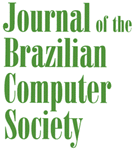Mutation Testing originated from a classical method for digital circuit testing and today is used at program and specification levels. It can be used either to generate or to assess the quality of test sets. In spite of being very effective in detecting faults, Mutation Testing is usually considered a high cost criterion due to: i) the large number of generated mutants; ii) the time-consuming activity of determining equivalent mutants; and iii) the mutant execution time. Many initiatives aiming at reducing the Mutation Testing application cost have been conducted, most of them addressing one of the drawbacks mentioned above. In this paper, we identify and summarize some of the most relevant researches and results related to Mutation Testing cost reduction, e.g., Constrained-Mutation, Constraint-Based Testing and Bayesian Learning. Moreover, we propose a Mutation Testing process, named Muta-Pro, that synergetically integrates the related approaches and mechanisms. This process is intended to be incremental and tailorable to a specific application domain such as C programs or finite state machine models. The main ideas in this paper are illustrated using a UNIX utility program. This process is being integrated in a Mutation Testing environment, based on the authors' previous experience on implementing the Proteum Family tools, aiming at promoting the technology transfer to industry and providing the basis for improving the Muta-Pro process itself.
Mutation Testing; Mutation Testing Process; Testing Environment












